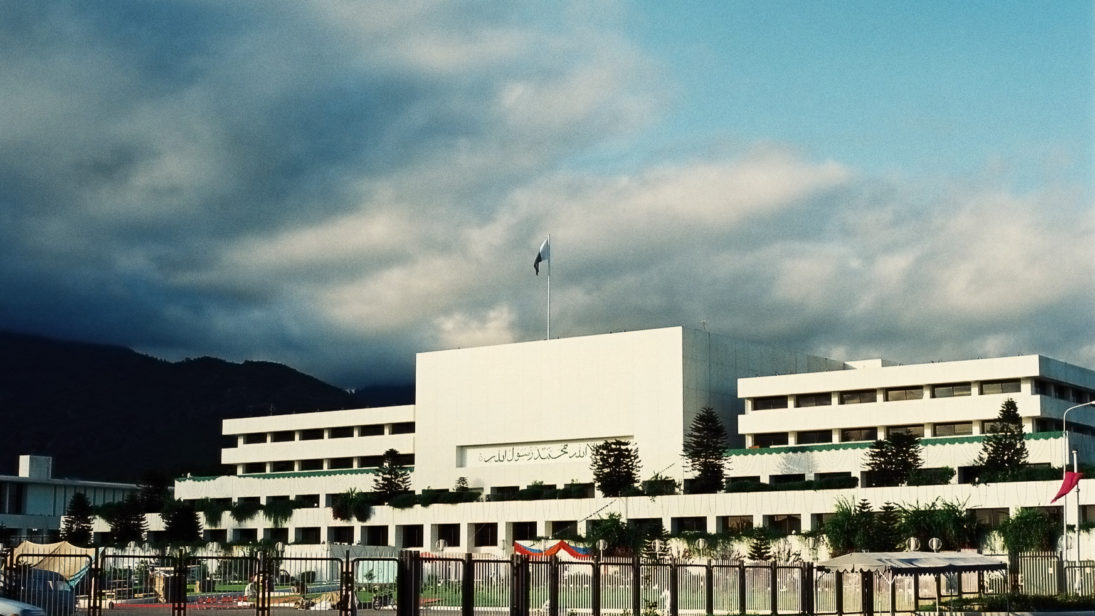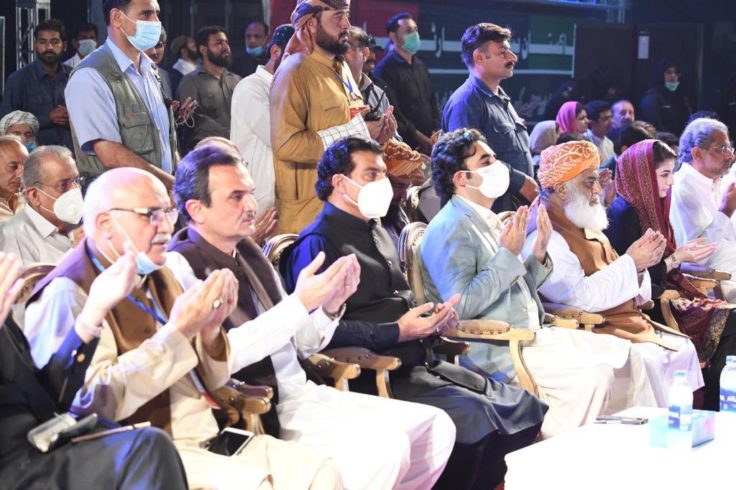
On March 6, 2021, Prime Minister of Pakistan and leader of the Pakistan Tehreek-Insaaf (PTI) party, Imran Khan sought a vote of confidence in the National Assembly to illustrate his government’s continued political control after suffering a major setback in the March 4 Senate elections, in which the opposition won 53 seats in comparison to the government’s 47. The PTI’s candidate and finance minister Abdul Hafeez Sheikh lost the “hotly contested general seat from Islamabad” to the joint opposition leader of the Pakistan Democratic Movement (PDM), the main opposition alliance against the PTI, and former prime minister of Pakistan Yousaf Raza Gillani. Although the Gillani-Sheikh contest was mired in controversy—Gillani’s son reportedly showed lawmakers how to cancel their votes right before the elections—Gillani came out victorious. Khan survived the vote of confidence in the National Assembly, securing 178 out of 342 votes; however, the opposition’s absence from the vote of confidence indicates the likelihood of further political wrangling in the coming weeks.
The opposition’s absence from the vote of confidence indicates the likelihood of further political wrangling in the coming weeks.
The PDM, an amalgam of several opposition parties, dismissed the vote of confidence, questioning the Prime Minister’s authority to summon the National Assembly. Maulana Fazlur Rehman of the PDM stated that the session would hold no value without the opposition’s attendance. He also criticized Imran Khan for seeking a vote of confidence from the same parliamentarians Khan had accused of taking bribes. At a press conference after Khan’s speech to the nation ahead of the vote of confidence, the PDM leadership downplayed the significance of the speech. Maryam Nawaz, leader of Pakistan Muslim League Nawaz (PML-N), said, “I did not listen to it myself but have been told that it was the speech of a person who has already lost.” Bilawal Bhutto Zardari, leader of the Pakistan Peoples Party (PPP), said that Imran Khan’s choice of words indicates his concern regarding the PDM’s rise. Khan’s speech received mixed reviews from the public; many criticized him for undermining the integrity of the Election Commission—responsible for organizing the elections through a Supreme Court-mandated secret ballot—by asking the Commission to seek an investigative briefing from the intelligence agencies.

Since the opposition parties were able to retain their majority in the Senate, they are now preparing for the March 12 chairman and deputy chairman elections to further consolidate their control over the Senate. The opposition’s majority also implies that it will become increasingly difficult for the government to pass legislation in Parliament. According to observers, Khan will have to rely on presidential ordinances to keep his government functioning. For example, Khan will find it impossible to make constitutional changes such as scrapping the 18th constitutional amendment or passing legislation related to judicial and financial reforms.
Some observers have noted that in the long-run, the opposition’s majority in the Senate might help promote political stability by encouraging Khan to recognize that sustained reforms require greater political consensus.
Gillani’s victory, the opposition’s Senate majority, and the PDM’s approaching March 26 march against the government threaten the PTI’s political control. This political uncertainty could afflict huge costs and must be avoided, especially given the country’s grave economic issues. Some observers have noted that in the long-run, the opposition’s majority in the Senate might help promote political stability by encouraging Khan to recognize that sustained reforms require greater political consensus. In order to maintain law and order, Khan and his party should focus on Pakistan’s domestic economy, governance, and accountability issues rather than engaging in petty politics against the opposition.
***
Image 1: Usman Ghani via Flickr
Image 2: BilawalBhuttoZardari via Flickr


